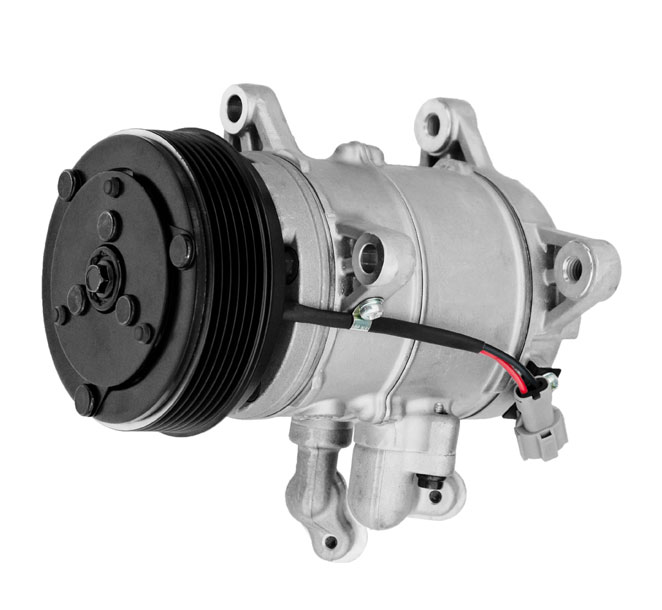
What Is The Heart Of An Auto A/C System?
The beating heart of every auto A/C system is none other than the compressor. This device plays an essential role in the operation of your car’s air conditioning system, and without it you wouldn’t be able to enjoy the cool, refreshing air that makes your car comfortable to drive even during the hottest seasons.
How Does It Function?
A compressor is essentially a pump, which is responsible for transferring refrigerant throughout the air conditioning unit. Refrigerant will be transported through pipes or hoses from one A/C component to the others. While the design of the compressor will vary from one manufacturer to another, they all basically function in the same manner. Compressors are belt driven via the engine with a clutch that is electromagnetic. There are also some hybrid automobiles which utilize a motor which is electric to control their compressor.
The clutch gives the compressor the ability to disengage each time the A/C is shut off, or during moments when the compressor is not needed by the system. The clutch gets electrical signals through a component named the relay, which gets its signal for activation via either the engine control or fuel injection.
Aside from serving as a refrigerant pump, the compressor is tasked with another responsibility, which is increasing the refrigerant pressure. As the pressure of the refrigerant rises, so will the temperature. Increasing the pressure of the refrigerant allows it to release the heat of the passenger compartment which it absorbed during its time in the evaporator. The process of heat release occurs in another important component, which is named the condenser.
Similarities Between Compressors And Water Pumps
The compressor and water pump have a lot in common. For instance, water pumps also circulate engine coolant within the system, and this coolant will absorb engine heat, allowing the pump to transfer it to a radiator where the heat can be released into the surrounding environment. The pump can also circulate coolant which is hot within the core of heater which allows the vehicle’s cabin to become warm during winter. The only difference is that the compressor circulates refrigerant, which absorbs heat within the automobile as it moves within the evaporator. The refrigerant then continues to a condenser, where heat is given up and also released into the environment.
Reasons Why Compressors Malfunction
Due to the fact that the compressor is the heart of the A/C unit, most models are exceptionally well made and durable. However, there are a number of factors which can cause it to malfunction, such as inadequate lubrication and refrigerant leakage. The leakage of refrigerant is a serious problem because if often coincides with a loss of lubricant. If not resolved quickly the compressor could either lock up or wear down rapidly. When compressors fail, they often cause a buildup of debris (especially metallic parts), which can damage the condenser and other components.

